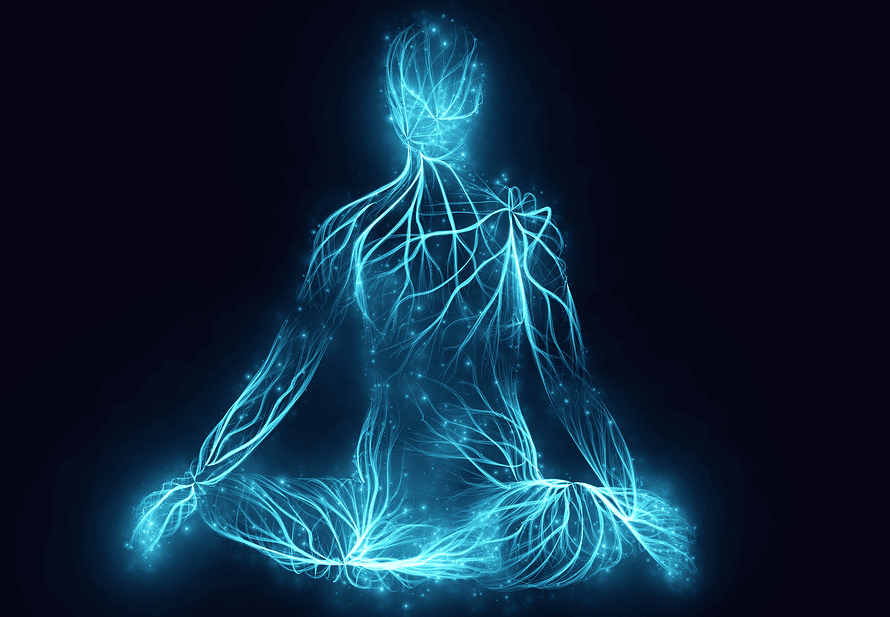What Is The Concept Of Vital Force In Homeopathy?

The concept of vital force in homeopathy is a fundamental principle that underlies the practice of this alternative system of medicine. Homeopathy views the vital force as a dynamic energy or life force that animates and maintains the overall health and well-being of an individual. This concept dates back to the origins of homeopathy in the late 18th century and is deeply rooted in the philosophy of vitalism.
According to homeopathic principles, any disturbance or imbalance in the vital force manifests as symptoms of disease. Homeopathic remedies are believed to stimulate and restore the vital force, thereby promoting healing and restoring balance.
However, the concept of vital force has been subject to criticism and controversy within the medical community, with some considering it as unscientific and lacking empirical evidence. Despite this, homeopathy continues to embrace the holistic approach of addressing the vital force as an integral part of healing.
Key Takeaways
- Vital force is a fundamental principle in homeopathy that maintains overall health and well-being.
- Any disturbance in the vital force manifests as disease symptoms.
- Homeopathic remedies stimulate and restore the vital force to promote healing.
- The concept of vital force has ancient origins in Greek, Roman, and Eastern medical traditions.
The Definition of Vital Force in Homeopathy
The concept of vital force in homeopathy refers to a hypothetical energy or life force that is believed to govern the body’s self-healing capabilities and maintain overall health and balance.
According to homeopathic principles, this vital force is present in every living organism and is responsible for maintaining the body’s equilibrium. It is viewed as an intelligent force that orchestrates the body’s responses to internal and external stimuli, thereby enabling it to heal itself.
Homeopathy posits that any disruption or imbalance in the vital force can lead to the development of disease symptoms. Therefore, the aim of homeopathic treatment is to stimulate and strengthen the vital force, allowing it to restore harmony and facilitate the body’s natural healing processes.
This concept of vital force sets homeopathy apart from conventional medicine and forms the foundation of its unique approach to health and healing.
The Role of Vital Force in Maintaining Health
A crucial element in sustaining a state of well-being is the active engagement of a dynamic internal energy that orchestrates the body’s equilibrium.
This energy, known as the vital force in homeopathy, is believed to play a significant role in maintaining health. According to homeopathic principles, the vital force is responsible for the body’s self-regulation and healing processes. It is considered the life force or vital energy that governs the overall functioning of the body and mind.
Homeopathy believes that when the vital force is in a balanced and harmonious state, the body is able to resist disease and maintain good health. However, when the vital force is weakened or disrupted, it can lead to a state of imbalance and susceptibility to illness.
Homeopathic remedies aim to stimulate and restore the vital force, promoting its natural ability to heal and restore health.
The Historical Origins of the Concept of Vital Force
Originating from ancient philosophical and medical traditions, the concept of a dynamic internal energy that governs the body’s equilibrium and resilience has captivated scholars and practitioners for centuries. This concept, known as the vital force, forms the foundation of homeopathic philosophy. Homeopathy posits that the vital force is responsible for maintaining health and healing the body. It is believed to be an intelligent energy that regulates the body’s functions and enables it to defend against disease.
The historical origins of the concept of vital force can be traced back to ancient Greek and Roman medicine, where the idea of a life force or anima was central to understanding health and disease. In addition, the vital force finds its roots in ancient Eastern medical systems like Ayurveda and Traditional Chinese Medicine, which also recognized the existence of an energetic force that sustains life.
How Homeopathy Harnesses the Power of Vital Force
One way to tap into the energy of the body’s internal equilibrium and resilience is by utilizing the principles of homeopathic medicine. Homeopathy harnesses the power of vital force, which is believed to be the life force or energy that animates and sustains all living organisms. According to homeopathic philosophy, when this vital force is disrupted or imbalanced, it can lead to various physical, mental, and emotional symptoms. Homeopathic remedies, which are highly diluted substances derived from plants, minerals, or animals, are believed to stimulate the vital force and restore its equilibrium, thus promoting healing and restoring health. The concept of vital force in homeopathy is based on the idea that the body has an inherent ability to heal itself, and by stimulating the vital force, homeopathic remedies aim to support this natural healing process.
| Column 1 | Column 2 | Column 3 |
|---|---|---|
| Promotes holistic healing | Supports the body’s natural defenses | Addresses underlying imbalances |
| Safe and non-toxic | Individualized treatment approach | Minimal side effects |
| Can be used alongside conventional medicine | Suitable for all age groups | Treats a wide range of conditions |
| Emphasizes overall well-being | Targets the root cause of symptoms | Considers the whole person |
| Encourages self-awareness and self-care | Relatively affordable compared to some conventional treatments | Respects the body’s innate wisdom |
The Relationship Between Vital Force and Symptoms
The interplay between the body’s internal equilibrium and the manifestation of symptoms is a complex dynamic that requires further exploration.
In homeopathy, the concept of vital force plays a key role in understanding this relationship. The vital force is seen as the life force or energy that maintains health and regulates the body’s functions. It is believed to be responsible for the body’s ability to heal itself and maintain balance.
According to homeopathic principles, symptoms are seen as manifestations of an imbalance in the vital force. By carefully observing and understanding these symptoms, homeopathic practitioners aim to identify the underlying imbalance and prescribe remedies that stimulate the body’s vital force to restore equilibrium. This approach is based on the belief that by addressing the root cause of the symptoms, rather than just suppressing them, true healing can occur.
The vital force is viewed as an intelligent and self-regulating energy.
Symptoms are seen as expressions of the vital force’s attempt to restore balance.
Homeopathic remedies are selected based on the principle of ‘like cures like.’
The goal of homeopathic treatment is to stimulate the vital force to initiate the healing process.
The concept of vital force is not recognized in conventional medicine but is central to homeopathic philosophy.
Balancing the Vital Force Through Homeopathic Remedies
The previous subtopic explored the relationship between vital force and symptoms in homeopathy. Now, the focus shifts to the concept of balancing the vital force through homeopathic remedies.
Homeopathy believes that any disturbance in the vital force leads to disease, and by restoring the balance of the vital force, healing can occur. Homeopathic remedies are prepared from substances that can produce symptoms similar to those of the disease in a healthy individual. These remedies work by stimulating the vital force, which then initiates the body’s self-healing mechanism.
The selection of the appropriate remedy is based on the principle of ‘like cures like,’ where a substance that causes symptoms in a healthy person can relieve similar symptoms in a sick person. The goal is to restore the vital force to its natural state of equilibrium, promoting overall well-being and health.
The Criticisms and Controversies Surrounding the Concept of Vital Force
Critics and skeptics have raised questions about the validity and scientific basis of the theoretical framework underpinning the concept of vital force in homeopathy.
One major criticism revolves around the lack of empirical evidence supporting the existence of vital force. They argue that vital force is a metaphysical concept that cannot be measured or quantified, making it difficult to study scientifically.
Additionally, opponents argue that the concept of vital force is not consistent with our current understanding of biology and physiology. They contend that homeopathy’s reliance on the vital force as the basis for treatment is pseudoscientific and lacks a plausible mechanism of action.
Furthermore, critics argue that the concept of vital force is not universally accepted in the medical community, which raises concerns about the legitimacy of homeopathy as a medical practice.
The Future of Vital Force in Homeopathy
The future of vital force in homeopathy is likely to be shaped by research and advancements in understanding.
As scientific knowledge continues to expand, there is a growing need for empirical evidence to support the concept of vital force.
Furthermore, the integration of homeopathy with other medical approaches may also play a significant role in the future of vital force, as it allows for a more comprehensive and holistic approach to healthcare.
Research and advancements in understanding
Research and advancements have shed light on the understanding of vital force in homeopathy. Over the years, there has been a growing interest in exploring the scientific basis of homeopathy and its underlying principles. Various studies have been conducted to investigate the concept of vital force and its role in the therapeutic process.
Researchers have explored the relationship between vital force and the body’s innate healing mechanisms, as well as its connection to the mind-body interaction. Additionally, advancements in technology have allowed for more sophisticated methods of measuring and quantifying vital force. These advancements have opened up new avenues for research, enabling a deeper understanding of the concept and its potential applications in homeopathic practice.
While there is still much to learn, these research efforts have undoubtedly contributed to the evolving understanding of vital force in homeopathy.
Integration with other medical approaches
Integrating homeopathic principles with other medical approaches allows for a comprehensive and holistic approach to patient care.
While homeopathy is based on the concept of vital force and the use of highly diluted substances to stimulate the body’s self-healing abilities, other medical approaches focus on different aspects of health and treatment.
By combining these approaches, healthcare providers can address a wider range of patient needs and enhance treatment outcomes.
For example, integrative medicine, which combines conventional medicine with complementary and alternative therapies, recognizes the value of homeopathy as part of a multidimensional approach to healthcare.
Additionally, some medical professionals may use homeopathic remedies alongside conventional treatments to manage symptoms and improve overall well-being.
This integration acknowledges the potential benefits of homeopathy while also recognizing the importance of evidence-based medicine and individualized patient care.
Embracing the Holistic Approach of Homeopathy
Embracing the holistic approach of homeopathy involves a comprehensive understanding of the vital force, which is a central concept in homeopathic philosophy.
According to homeopathic principles, the vital force is an energetic life force that exists within every living organism. It is believed to be responsible for maintaining overall health and balance in the body. Homeopathic remedies are thought to stimulate and support the vital force, allowing the body to heal itself.
This approach emphasizes the interconnectedness of the physical, mental, and emotional aspects of a person’s well-being. It acknowledges that symptoms are not isolated manifestations but rather expressions of an underlying imbalance in the vital force.
By addressing the root cause of the imbalance and supporting the vital force, homeopathy aims to restore harmony and promote holistic healing.
Frequently Asked Questions
Are there any scientific studies that support the concept of vital force in homeopathy?
There is limited scientific evidence to support the concept of vital force in homeopathy. While some studies show positive effects of homeopathic treatments, the underlying mechanisms and the existence of vital force remain controversial and require further research.
Can the concept of vital force be applied to other alternative medicine practices?
The concept of vital force, central to homeopathy, cannot be directly applied to other alternative medicine practices as it is specific to the principles and philosophy of homeopathy. Each alternative medicine practice has its own unique concepts and principles.
How does the concept of vital force differ from the concept of energy in other healing modalities?
The concept of vital force in homeopathy differs from the concept of energy in other healing modalities as it emphasizes a dynamic, life force unique to each individual, while energy in other modalities is often seen as a more general, universal force.
Are there any potential dangers or risks associated with homeopathic remedies that aim to balance the vital force?
Potential dangers or risks associated with homeopathic remedies that aim to balance the vital force include delayed or inadequate treatment for serious medical conditions, reliance on ineffective treatments, and potential interactions with conventional medications.
Can the concept of vital force be understood and explained using modern medical and scientific understanding?
The concept of vital force in homeopathy cannot be understood and explained using modern medical and scientific understanding. It is a fundamental concept in homeopathy that is not supported by evidence-based scientific principles.









